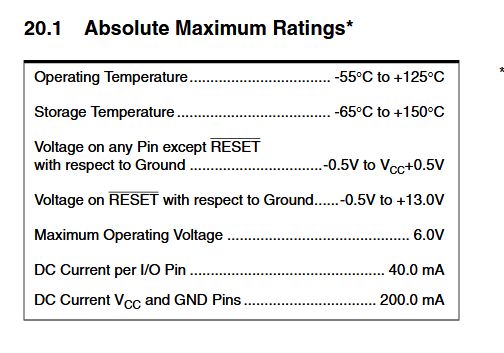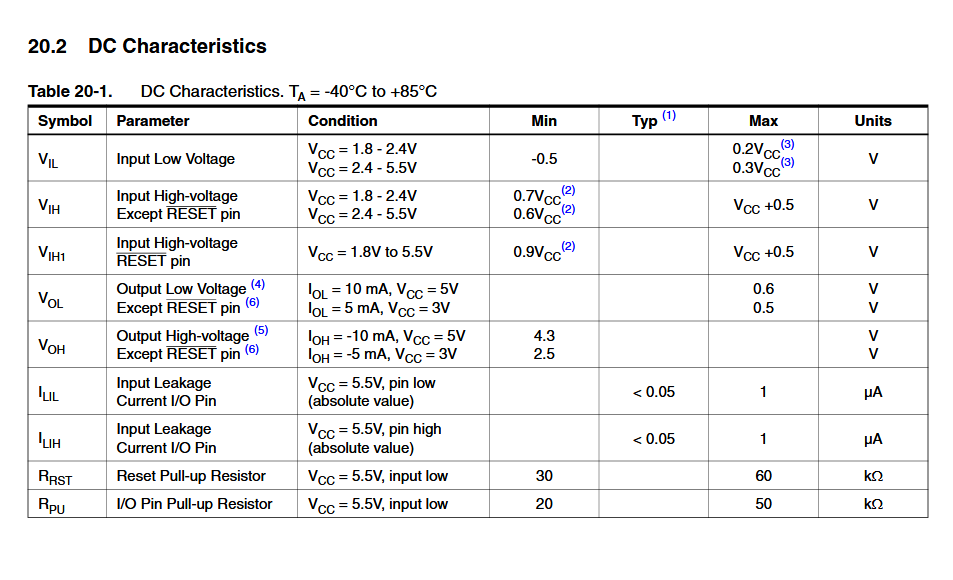I'm fairly new to working with electronics so I apologize for my lack of understanding of a few things. I'm working with an ATtiny84 and I was wondering what the max. voltage and current are when I use a pin as an input pin.
I looked through the datasheet hoping for some answers but I ultimately came out confused. I also searched online for some answers but many were conflicting or hard to understand.
Here's some of the content from the page I looked at on the datasheet:
When they say "voltage on any pin" are they referring to the applied voltage (i.e. voltage going to the pin)? Or the voltage that can come out per pin?


